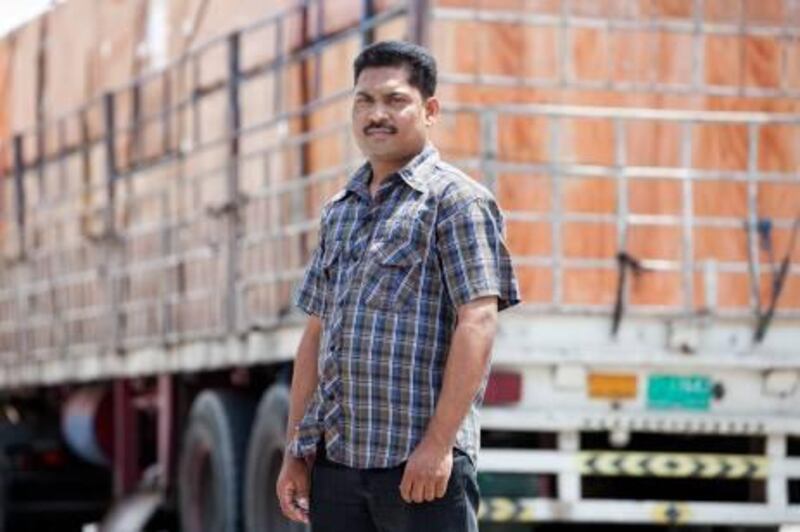DUBAI // A man who was sentenced to three months in prison for his involvement in the accidental death of a co-worker has been freed - after serving three years.
In June 2008, Sakeer Hussain Kutty, an electrician from India, had mistakenly started the van he was sitting in, meaning to listen to the radio, when it jerked backwards and hit his co-worker, who was standing in between the vehicle and a loading ramp at a downtown office complex. The 26-year-old died the same day.
Mr Kutty was jailed shortly after the accident, but released briefly from August 2008 until his sentencing in January 2009, when he went back to prison. His sentence specified a total of three months' jail time, a Dh10,000 fine and a Dh200,000 blood money settlement.
Unable to pay the sum, Mr Kutty languished in jail until September 5 this year, when his employer, a removal company and an Indian aid group - the Indian Community Welfare Committee (ICWC) - made the payment on his behalf.
Relieved at his freedom, Mr Kutty, 37, is desperate to be reunited with his family in India. However, he plans to return to the Emirates because he must rebuild his savings, which were wiped out while he was in prison.
Unable to make bank loan payments while he was in jail, his family lost their home. His wife and two sons, ages 10 and 12, have been living with her family since.
"I need to work much more now. I need to bring up my children. I need to build another home for them to live in," Mr Kutty said.
He will travel home this week after legal formalities are completed.
"Every time my sons asked me when I would be free, I would say one month more; the next month again I would say one more month, like this three years have gone," he said.
He shuddered when asked about the fatal error that cost his co-worker's life and Mr Kutty's freedom.
"I made one mistake, but it is a mistake I can never ever forget," he said.
"Now I'm too scared to sit in the front of a car," he said. "Not a day goes by that I don't think of that boy or wish I never wanted to switch on that radio."
His colleagues have told him to stop dwelling on the accident. Dozens greeted him warmly on his return to the company accommodation in Dubai's Al Quoz industrial area. Several workers had regularly contributed portions of their Dh1,200 to Dh3,000 monthly salary to help Mr Kutty's family.
His family want him to forget his overseas dreams and take up a job in India. "Everyone just wants him home soon," said Mr Kutty's wife, Safia, from Karikode town in Kerala state. "We are very, very happy. No one can imagine how happy we are."
There are about 1,700 Indians in UAE jails, according to Indian government figures. Mr Kutty is the eleventh prisoner in fatal accident cases that the ICWC has helped to release over the past year. Under the patronage of the Indian consulate, the group pledged last year to intervene in 13 cases where worksite or road deaths were caused without premeditation.
The organisation, headed by K Kumar and the Indian consulate, will announce fresh welfare initiatives at a press conference today.
An emotional Mr Kutty yesterday touched his heart and said: "I know what they (ICWC) have done for me. I know it in here."
He expressed no bitterness at his ordeal, only relief that it had ended.
"What can I say about being free?" he said, smiling broadly, raising his palms toward the sunlight. "When you are free, you have everything."







